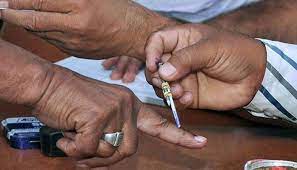In Gujarat’s Devbhoomi Dwarka district, over 575 Muslim fishermen face the distressing reality of being unable to cast their votes. Their names were unexpectedly removed from the voter list following the demolition of ports in Gandhvi and Navadra villages. The state administration carried out the demolition of homes belonging to Muslim fishermen for port expansion purposes, displacing the residents last year.
These individuals, who had been active voters in Dwarka assembly constituency for years and also participated in the 2019 Lok Sabha elections, found themselves disenfranchised. Approximately 350 Muslim fishermen from Gandhvi and 225 from Navadra have been affected. Despite being part of the electoral process for years, their voices have been silenced due to administrative actions.
The fishermen express a sense of being forcefully uprooted from their homes by the authorities, with numerous pleas for reinstatement and resettlement awaiting resolution in the Gujarat High Court. The demolitions were justified on grounds of “illegal construction on government land” by the Muslim fishing community. However, residents claim they were given insufficient time to vacate or retrieve their belongings, despite the matter being under judicial scrutiny.
One such affected individual is Jakub Moosa Pateliya, a 47-year-old fisherman from Navadra village, who now resides over 40 km away from his former home in Mul Dwarka. Having spent four decades in his previous settlement and having voted for at least 13 years, he faced disappointment when his attempts to verify his voter registration were thwarted by taluka authorities.
As the Lok Sabha polls approached, not a single member of his extended family, comprising 20 voters, received a crucial voter slip. These slips, issued by the Election Commission of India, serve as vital confirmations and guides for voters, detailing where and when they can exercise their franchise.

